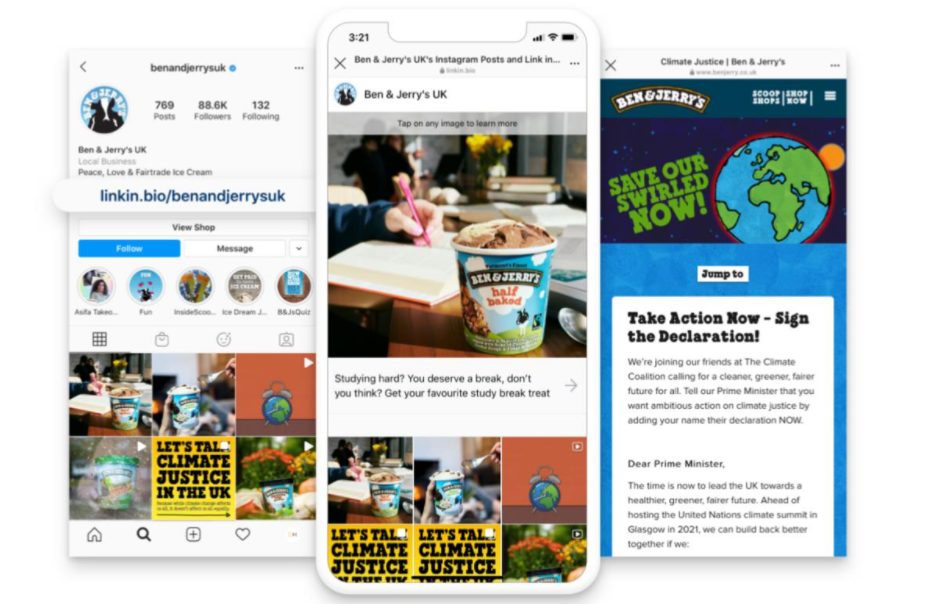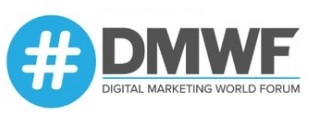
2020 has been a year of many important conversations and the environment is top of the list. This year, 66% of Raconteur readers noted “more sustainable” and “environmentally friendly” as the top traits they wanted brands to have. In a world of high market saturation and unlimited choices, it’s impossible to ignore what the consumer values. The smartest brands, in turn, have recognized this and have implemented sustainable practices. Let’s take a look at how some of the best brands incorporate the environment into their overarching strategies and how they use different social media channels to spread their message.
Selfridges
In August of 2020, well-known UK department store Selfridges launched Project Earth, a sustainability initiative aiming to change the way consumers shop by 2025. The project is a commitment to using environmentally impactful materials throughout the business and to engage with partners, employees, and consumers to inspire a shift in mindset. These initiatives extend beyond carrying sustainable brands in their stores. Selfridges launched a resell, rent, and repair service, and has begun hosting a series of in-store events focused on environmental topics.
Since the launch, the brand has actively promoted all things sustainability on Instagram, by championing products that will last a lifetime, posting IGTV videos of interviews with sustainability experts, and offering discounted incentives for consumers who use their beauty refill services.
Ben & Jerry’s UK (Unilever)
Ben & Jerry’s UK lobbied for the environment before it was a “cool” thing to do and now they are at the forefront of environmentally conscious brands. Not only do they make their voice heard through their social channels, they practice what they preach in the manufacturing process as well. Ben & Jerry’s sources its dairy and egg products from ethical and fairtrade producers and uses responsible packaging for every product. In 2017, the brand launched a non-dairy option of its beloved ice cream in effort to inspire global change for “the climate crisis you can’t ignore”.
Using its social platforms to its advantage, the brand combines adorable graphics with powerful messages to grab the attention of its audience. Every post the brand shares on Instagram relating to climate activism connects to a link-in-bio solution. From there, the brand provides a plethora of content, including educational blog posts, environmental petitions to sign, and videos on climate change.

Stella McCartney (LVMH)
Stella McCartney is a leading force when it comes to sustainability within the fashion industry. The designer took control of her supply chain in 2016, in a move to ensure all products were being ethically sourced and produced with the environment in mind. The brand has always been committed to producing its beautiful pieces sans fur or leather, proving time and time again that fashion can be both luxurious, and sustainable.
To promote the brand’s A-Z Sustainability Manifesto, the designer took to Instagram, highlighting key pillars such as Accountability, Timeless, and Effortless. When fashion week rolled around, every photo of the SS21 collection posted also included a description of the materials used for each look, where they were sourced, and how they contributed to the overall company goal of sustainability.
IKEA
Global furniture giant IKEA lives and breathes sustainability in everything it does. Over the past few years, the brand has launched a “sustainable at home” line of water and energy efficient products, as well as construction on the UK’s “most sustainable store”. The company, guided by the UN’s Sustainable Development Goals, aims to one day produce as much renewable energy as it consumes in an attempt to create a circular economy.
On social, the brand has been actively showcasing ways to live more sustainably at home. This includes encouraging consumers to repurpose old furniture instead of throwing it out, educating consumers on what their products are made of, and even providing fans with the recipe to their newest creation—plant-based Swedish meatballs.
LEGO
Childhood favourite LEGO has been tasked with making its tiny, plastic toys environmentally friendly. Pledging to make all core LEGO products from sustainable materials by 2030, the brand also actively seeks ways in which to make its packaging from renewable and recycled materials. The most exciting part is the LEGO Replay campaign, which is the brand’s effort to create a circular economy by passing on old LEGO blocks to children in need.
The brand’s recent social media hashtag campaign #RebuildtheWorld, promotes repurposing blocks by using them in new ways, such as fixing regular items with them. The campaign has garnered over 20.1K posts from user-generated content, with users creating and sharing posts, videos and reels that focus on sustainability.
ASOS
ASOS has always been ahead of the curve when it comes to e-commerce retailing and its policies on sustainability are no different. Since launching ASOS Marketplace, this platform now sees 76% of all items sold either vintage or pre-worn. The brand actively promotes the Marketplace and its sellers on its social channels, highlighting clothing care, sustainable choices, and how to repair and recycle old clothes.
ASOS Marketplace has its own dedicated Instagram account that features the posts of its vintage sellers. The account not only promotes buying second-hand clothing, but also showcases local handmade products and sustainable charities to support.
Go green or go home
There are many other notable mentions doing great things for the earth, such as Lush Cosmetics and Arket. Sustainability is no longer an option or a “nice thing to do”. Consumers are demanding that the brands they support prioritize and actively seek out ways to better the environment. From supply chain right down to the products on the shelves, the future top brands of the world will be those that incorporate sustainable practices as a key pillar in their business.
Dash Hudson will be at DMWF Europe Virtual on 24-25 November 2020. Find out more about the event here.
Photo by Vincent van Zalinge on Unsplash

Interested in hearing leading global brands discuss subjects like this in person?
Find out more about Digital Marketing World Forum (#DMWF) Europe, London, North America, and Singapore.







Thank you for this amazing article. It helped me much
Great Article Olivia, I think that Marketing managers not just have to form sustainable marketing strategies but also need to effectively communicate them to their target audience.
Sustainability is becoming more and more important for modern marketers. The competitive edge a company gets by being sustainable can’t be ignored and every marketer needs to be aware of how to introduce sustainability to even their marketing strategies.